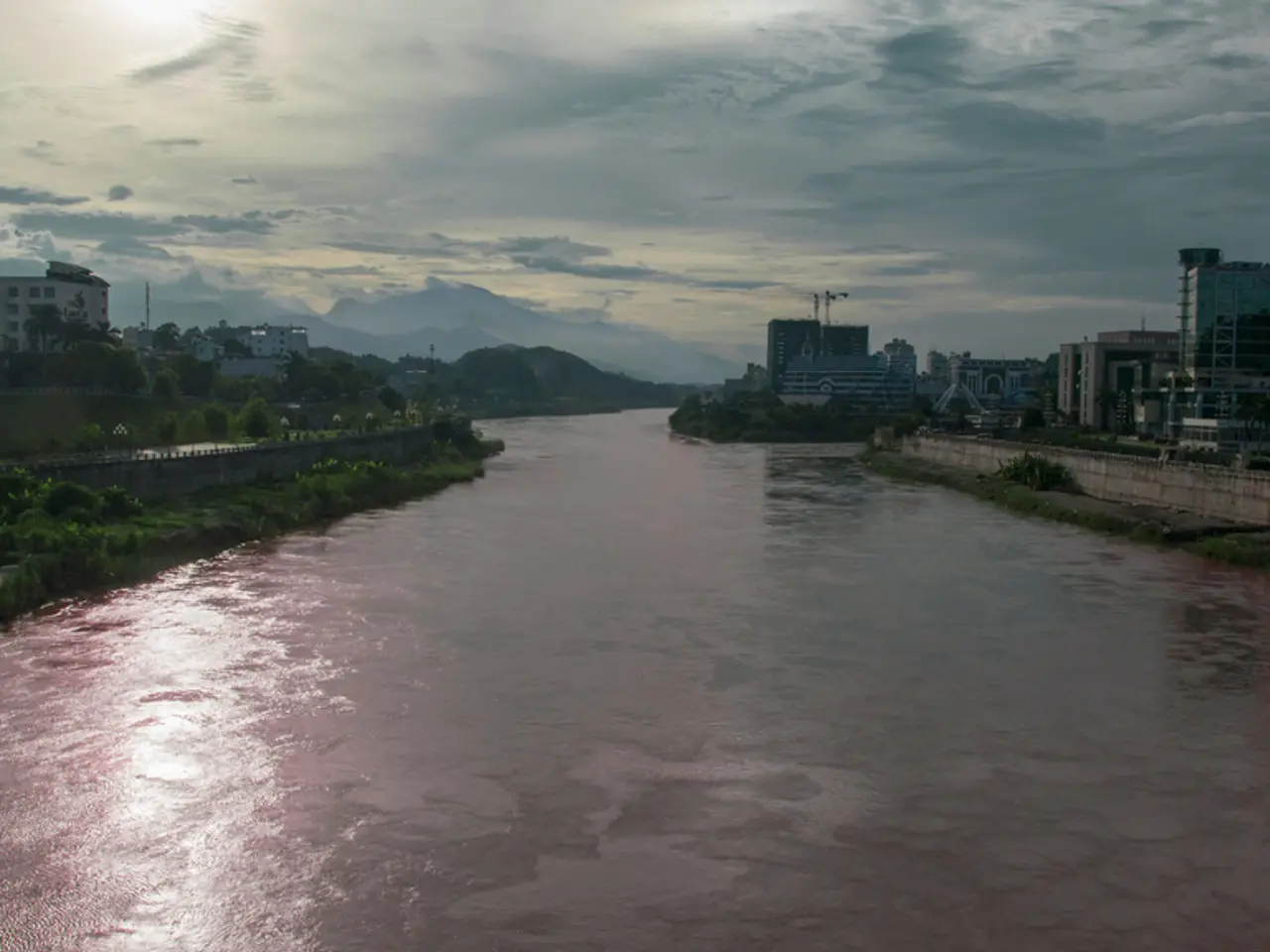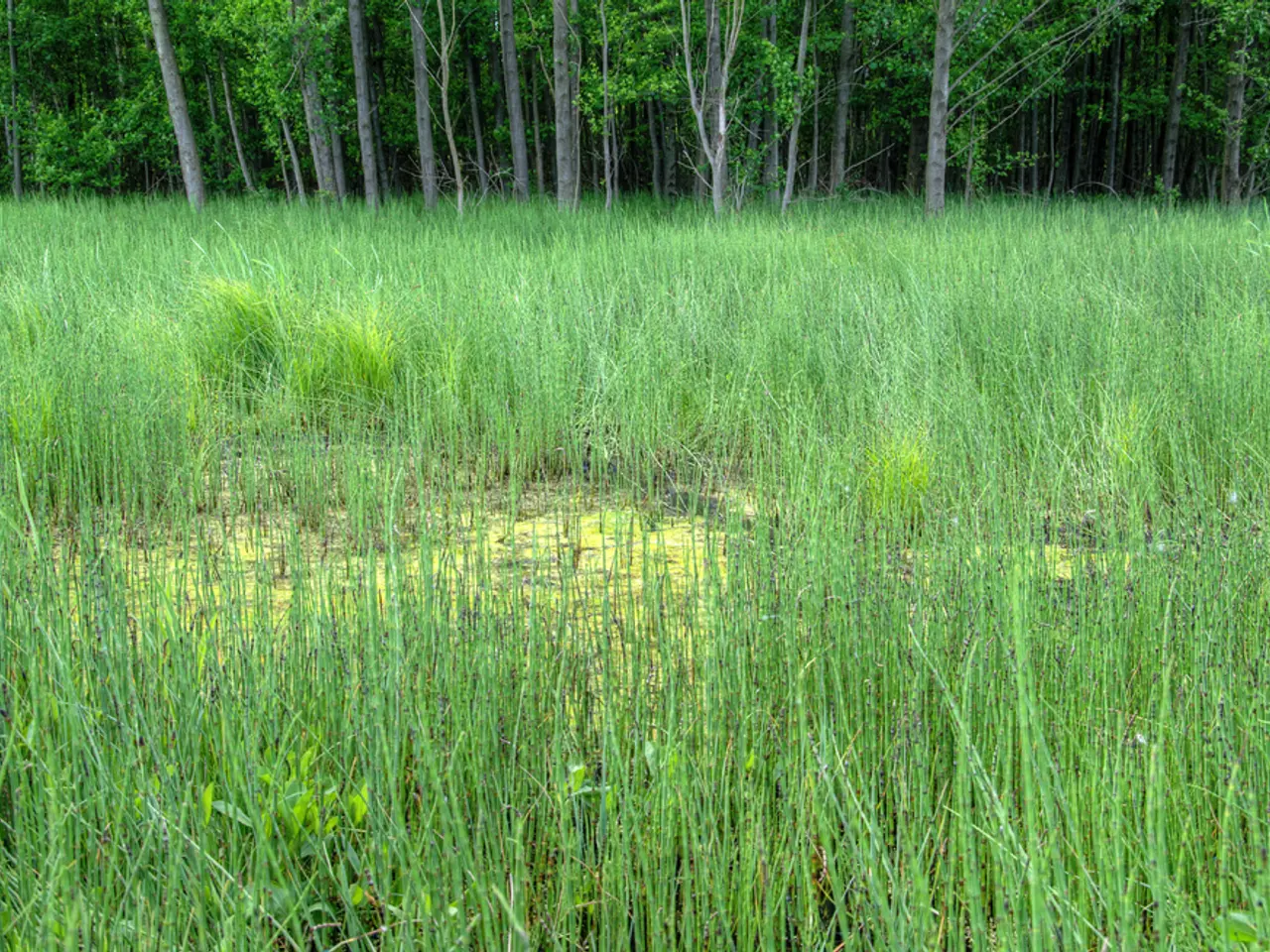France is decreasing the operation of nuclear power plants due to the ongoing heat wave. - Nuclear power plant in France suspended due to heatwave.
A scorching heatwave sweeping across France has led to the shutdown of several nuclear power plants, including the Golfech plant, to prevent rivers from overheating. This is part of a larger strategy to manage the heatwave's impact on France's water resources.
The Golfech nuclear power plant, situated in southwestern France, was shut down due to the heatwave, with similar measures being taken at the western French nuclear power plant in Blayais to prevent overheating of the Gironde estuary. EDF, the state-owned power company in France, made the announcement regarding these measures.
The heatwave has resulted in temperatures up to 40 degrees Celsius, causing river temperatures to rise substantially. Nuclear reactors use river water to cool their systems, discharging warm water back into the rivers. Environmental regulations limit the allowable temperature of discharged water to protect river ecosystems. During heatwaves, river temperatures rise, reducing their capacity to absorb additional heat and forcing plants to reduce power output to comply with these regulations.
EDF has had to proactively reduce output at affected nuclear plants during periods when river temperatures approach or exceed regulatory thresholds to avoid violating environmental conditions. The company issues warnings ahead of heatwave events to manage grid expectations and adjust operations accordingly.
The shutdown of the Golfech nuclear power plant and the reduction in output at the Blayais plant are not significant, according to EDF. However, since 2000, annual power production has been reduced by an average of 0.3 percent due to throttling or shutting down nuclear power plants during heatwaves.
The southern nuclear power plant Bugey, which depends on the Rhône water for cooling, is also at risk of shutting down due to the heatwave. In June 2025, EDF warned that rising temperatures along the Rhône forced them to reduce electricity production, especially at the Bugey plant.
The 2025 heatwave is part of a trend of rising temperatures and more frequent extreme heat events in France, linked to climate change patterns. These heatwaves cause both supply-side constraints in nuclear power and higher electricity demand for cooling, contributing to volatility in power prices and prompting greater interest in renewable energy development as a complementary solution.
Sources: [1] Le Monde, "Les centrales nucléaires en France sont menacées par la chaleur," 2025. [2] Reuters, "France's EDF cuts power output at nuclear plants due to heatwave," 2025. [3] The Guardian, "France's nuclear power output hit by heatwave," 2025. [4] Nature, "Climate change and heatwaves in Europe," 2021.
- The community policy of EDF, in response to the heatwave, involves proactive reduction of output at nuclear plants that rely on river water for cooling, to prevent violating environmental conditions due to overheating.
- The science behind climate-change indicates a trend of rising temperatures and more frequent extreme heat events in France, which can lead to supply-side constraints in the nuclear industry as seen during the heatwave.
- As a complementary solution to addressing energy supply volatility due to heatwaves, the finance sector is showing increasing interest in the development of renewable energy technologies for environmental-science reasons.




